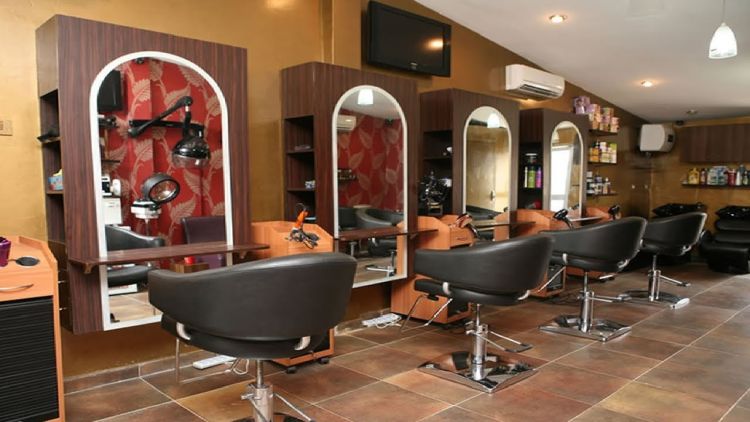AFTER Nigerians had soaked up another disappointment from the Independent National Electoral Commission (INEC) over the postponement of the February 16 general elections to February 23, the Lagos Chamber of Commerce and Industry (LCCI) began to count the losses the country has incurred.
The director-general, Muda Yusuf, said that the postponement cost the country about $1.5 billion. This may not be far from the truth, but LCCI probably came up with the figure with little or no consideration for the informal sector, which contributes more than 80 per cent to the economy.
Of course, there is no parameter to adequately measure how much the bricklayers, painters, plumbers, fashion designers, shoemakers and tailors, who operate as sole proprietors, make daily or monthly, they are more affected by government policies, including the recent election postponement.
Those that had earlier fixed social activities on March 9, due to the election would have to change the date, while their contracted event planners must reschedule their itinerary.
The LCCI boss is of the view that the last minute decision of the electoral umpire has definitely affected the economy and will affect mostly the informal sector in the weeks to come.
The petty food vendors, artisans, commercial motorcyclists and bus drivers were the bigger losers that ‘holy’ Saturday, as they recorded low patronage.
Food vendors who were contracted by political parties to supply foods to their agents ran at a loss because most of their condiments perished.
The mechanic workshops across Lagos metropolis were under lock and key. Tailor and barber shops were shut and could not deliver to their clients.
Many residents took time to rest, while a few commercial buses that hit the road after the postponement could not make much. The roads were virtually free in Lagos and this may continue because many residents had travelled out of the metropolis to vote where they had registered.
INEC chairman, Prof. Mahmood Yakubu, announced the postponement about 2.30am that Saturday, a few hours to the proposed election, making it difficult for the players in this informal sector to attend to their customers.
Mrs. Toyin Ogunleye, who owns a restaurant on Kadiri Street, Alausa, Ikeja, said: “I woke up to prepare the doughnut for party agents early on Saturday, but was shocked to learn that the election had been postponed.”
One of the political parties had contracted Ogunleye to provide meal for its agents. She told our correspondent that she lost over N75,000 for not being able to make the doughnuts.
“I was only given 40 per cent of the fund to prepare the doughnuts for about 100 polling units. I had bought ingredients, some of them perishable. I could not keep them till next week. I cannot go ahead with the plan unless the party will be ready to pay more money,” she said.
Prior to the election day, vehicular traffic was high. Many Nigerians travelled from one location to another to cast their ballot. According to INEC rules, a voter can only vote where he registered.
Investigations revealed that some of the automobile and electronic spare parts sellers at Ladipo, Mushin and Alaba areas of Lagos, who are of Igbo ethnic stock, actually travelled to exercise their franchise in the south-eastern part of the country where they registered.
There was exodus across the southwest states before the election. But many were disappointed, following the postponement.
Except for government workers or private sector employees, many of those who travelled last week, mostly the artisans, may not return to Lagos until after the February 23 polls.
As at Monday, February 18, some shops and stores had not opened because the owners had not returned.
Commenting, a bar and restaurant operator, Mr. Sunday Dominic, said he would have made good sales if the election had taken place. As he put it, “I have stocked my fridge with drinks, so that political party’s supporters could resume here after the polls to unwind. This never happened because the election was postponed.”
Dominic, who operates a bar at Yaya Abatan, Ogba area of Lagos, said he opened his shop on that Saturday evening but could not make tangible sales because many of his customers were politicians whose hope of getting some money was dashed due to the postponement.
To Mr. Femi Idowu, founder of Canopies, an event planning business, the postponement destabilised his operation. Idowu lives in Magboro, a suburb in Ogun State. He told our correspondent that he travelled to Sagamu on Friday to entertain some politicians, but ended the event abruptly.
“I organised one-man music show. The politicians were having nice time when we heard the news that the election had been postponed. The news destabilised everybody. I could not even ask for my imbursement,” he said.
Mathew Adewole, a tailor on Alhaja Tijani Street, Ojodu, told us that he could not deliver to his customers because his embroidery operator had travelled to the north for election.
He said, “I have gone to his shop. I have been calling his telephone numbers, but he would not pick. I pray he comes back this week to complete the job.”
However, in a statement signed by the deputy director of Socio-Economic Rights and Accountability Project (SERAP), Kolawole Oluwadare, the postponement of Nigeria’s elections since 2007 shows a systemic failure of leadership at the highest level of government, and suggests that the country’s electoral process is deliberately skewed in favour of politicians’ interests, who continue to profit from the corruption and impunity that have characterised the process since 1999, and against those of the citizens.”
While condemning the postponement, which of course will affect the economy for the next one or two weeks, SERAP urged Nigerians to take more active role in the fight against corruption, including putting pressure on the authorities at the federal and state levels to comprehensively reform, upgrade and modernise the electoral system and process. “Otherwise, citizens’ right to participate in the governance system will remain a ‘hollow right’.”
The organisation added: “It is time to push for revolutionary changes in how Nigeria conducts its elections. The changes should effectively deploy modern technology, which has been successfully used in the business and other sectors in the country. Such changes may include the introduction of a national system of Internet voting, to innovative ideas on how to adapt the election systems to facilitate participation by different sectors of the population, to conform with twenty-first century elections.”











